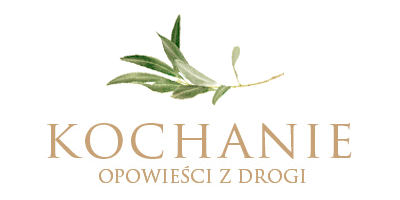You can have very little and at the same time be the richest man in the world. Is not he a rich man who gives generously everything he has? We are taught about this kind of wealth by the widow* who gave her very last money. This is the attitude of the heart that the Bible teaches us. I met such people in Africa and they were children.
It took place one evening when I was standing with them, their arms wrapped around me. Because in African villages I rarely stood alone. Where I was, they usually were barefoot, thirsty, most in heavily worn clothes with holes. Same ones as yesterday, the day before yesterday, and earlier. On me I had one whole shirt, one whole capulana, and a pair of intact flip-flops. All of them dirty, but only then. In perspective, I would be able to wash them by hand when we got back to the base. In a much broader perspective, I would return to Poland and wash them in a washing machine.
When you are under such circumstances, you realise that you really have everything. It teaches you humility. Your past desires become trivial. You see the luxury of your closet, the extravagance of your life. And no, it is not wrong. But it stops you for a moment and teaches you gratitude. And when you are standing there, you think you have something to give until you discover that even though you have everything, you are missing the most important thing – a right heart, without it you can not share anything.
It took place one evening when I was standing with them their arms wrapped around me. At some point, new faces joined us. They each brought with them a piece of bread. It was their supper. Seeing them, I was convinced that I had so much and that I could not do much with what I was seeing. For even if I had shared all that I had, soon I would return to my comfortable life, and they would stay there with their own.
At that moment someone touched my arm. I turned and tried to sharpen my eyes in the darkness. In front of me was one of the girls who had came with a piece of bread. She smiled widely and I reciprocated. Then she broke the bread and gave me a piece. I tried to refuse, I really did not want to eat some of her little supper but she insisted. It was extravagant. Extravagant sharing. Putting a piece of bread into my mouth, I thought of her big heart and about mine, quite small. This girl with her generosity broke the scheme in my head. Scheme of giving. Scheme, that I must have a lot in order to give.
It soon turned out that this was not an isolated case. Many times I was given gifts of peanuts or mangos, sometimes so many that I could not fit them in my hands. I shared them with others.
A few days later I heard from Heidi Baker at the base that they had a tradition at the school there. When one of the children has a birthday, the others must find a way to give them a gift. They do not collect a small sum of money from each to buy a gift. They do not go for pizza or to the cinema. They do not buy a tablet but they share what they have. Fruit picked from a tree on the way to school, prayer, a good word or time spent together. The children have to be more creative than those who have money. They have to give more of themselves, more than those who have money to pay for a gift.
I quickly learnt how much I had in that one suitcase that I took to Africa. The stuff I had packed were very much needed. On the spot, I found out that I had much more than I needed. It is amazing how quickly the perspective of ownership can change. On the last day a few of us sat together on the stairs of the church. I could not believe it was time to go back. I did not want to. The bag, packed, was waiting for me in the room. Children came to us and among them was Ana, who was maybe around seven years. She barely spoke English, but she asked me for shoes. I did not have any to give her. I had the ones on my feet, the other in the bag, but definitely they were too big for her. I tried to explain this to her. For a long time she would not be convinced, but finally she gave up. But then suddenly a thought came up within me, ?flip-flops are quite easy to cut?. I took the flip-flops and a notebook from the room – one of those with a decorated cover. For me one of many. For Ana, a treasure.
Africa has taught me that I always have something to give. And that the same travelling bags packed in western culture, in Africa, are always much bigger.
Jesus said that the widow gave the most.
* Now Jesus sat opposite the treasury and saw how the people put money into the treasury. And many who were rich put in much. Then one poor widow came and threw in two mites, which make a quadrans. So He called His disciples to Himself and said to them, Assuredly, I say to you that this poor widow has put in more than all those who have given to the treasury; for they all put in out of their abundance, but she out of her poverty put in all that she had, her whole livelihood. (Mark 12:41?-?44 NKJV)
